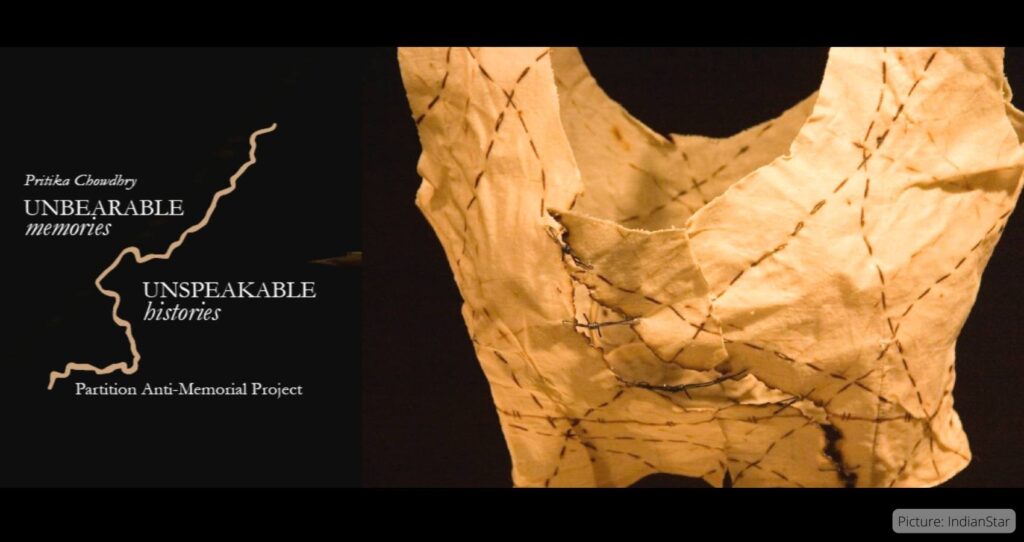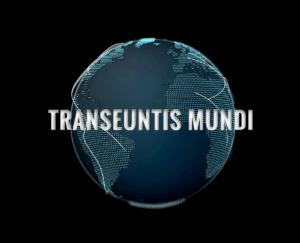An art exhibition at the South Asia Institute of Chicago marks the 75th anniversary of the partition of the Indian subcontinent and the emergence of India and Pakistan as independent nation-states. The exhibition titled “Unbearable Memories, Unspeakable Histories: Partition Anti-Memorial Project,” curated by postcolonial artist and curator, Pritika Chowdhury explains the narratives and stories of the partition that have been omitted from mainstream discourses.
The art installations on display at the exhibition are part of the artists’ “Partition Anti-Memorial Project” An art exhibition at the South Asia Institute of Chicago marks the 75th anniversary of the partition of the Indian subcontinent and the emergence of India and Pakistan as independent nation-states.
India’s independence from colonial rule in 1947 is forever linked with its ghostly twin, the Partition. Pritika Chowdhry’s exhibition investigates the Partition of India in 1947, which created Pakistan, and eventually, Bangladesh in 1971. The Partition is central to modern identity and geopolitics in South Asia. It triggered the largest, most rapid migration in human history and is often compared to the Holocaust. Over 20 million people were displaced in an unprecedented mass migration. Approximately 2 million people died in the communal violence across the new border, called the Radcliffe Line.
Partition Anti-Memorial Project founded on the 60th anniversary of the Partition in 2007, is Chowdhry’s ongoing research-based project that excavates subjugated knowledge about the 1947 Partition of India and the 1971 Bangladesh Liberation War to build several experiential art installations that are temporary anti-memorials to the Partition.
The Partition has been described by acclaimed Pakistani-American historian Ayesha Jalal as “the central historical event in twentieth century South Asia.” In her words, “A defining moment that has neither beginning nor end, partition continues to influence how the peoples and states of postcolonial South Asia envisage their past, present and future.”
Over the last fifteen years, Pritika Chowdhry has created ten bodies of work that address and examine the many facets of the Partition of India from a counter-memory perspective. Her anti-memorials create alternate ways to remember and memorialize traumatic geopolitical events, from the dual lenses of South Asian diasporic postmemory. “Pritika Chowdhry’s artwork is a powder keg of emotionality, raw talent, and visceral grit! I have never met a more thoughtful, theoretically engaged artist-scholar-educator-activist. Counter-Memory Project is the stuff of truth-telling, trauma-healing, and narrative-forging!” remarks Jacque Micieli-Voutsinas, PhD, Assistant Professor Museum Studies, University of Florida, Gainesville.
Evoking corporeal bodies through a myriad of materials, the exhibition highlights generational resilience and resistance. To commemorate the 75th anniversary of the Partition, several of the artist’s works will be featured in a solo retrospective exhibition at the South Asia Institute in Chicago from August 06 to December 10 2022.
Pritika Chowdhry is a feminist and postcolonial artist and curator, whose work is in both public and private collections. Through large-scale sculptures and site-sensitive installations that reference the body, her work memorializes unbearable memories. Having witnessed the intergenerational effects of geopolitical trauma, Chowdhry has dedicated her artistic practice to cataloging the violence of colonialism/imperialism alongside global acts of resistance.
Through her anti-memorials, Chowdhry aims to highlight historically marginalized female voices in the representation of Partition while contextualizing the event’s global repercussions. Transnational in scope, her sculptural art installations and anti-memorials bear witness to partitions of countries, civil and military wars, riots, border violence, genocides, and terrorist attacks, holding space for mourning, remembrance, and repair.
This content was originally published here.



